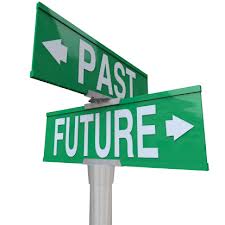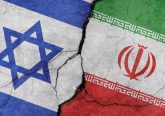Two decades ago, the ‘End of History’, à la Francis Fukuyama, seemed a plausible prediction for many in the West. At least, it was a prophecy many hoped would turn into a self-fulfilling prophecy. In the climate of reinvigorated faith in the virtues of liberal democracy post-1989, freedom and democracy were two common buzzwords that indeed seem to carry a strong promise for the future. They also seemed indissolubly linked and interchangeable.
Western-type liberal democracy in its current form remains the most tested and successful accountable governance model in history. However, as a slogan for global political change in the 21st century, it needs to be re-examined both in terms of its applicability to all forms of societies and for making current democratic societies more inclusive. The range of events now in the spotlight of international relations – such as the Arab Spring – has further emphasized that the bid for leadership change, be it highly authoritarian, might in fact be premised on a quest for something more wholesome than just political freedom.
What triggered successive rounds of popular upheavals in the Middle East was first and foremost the growing sense of frustration with the lack of government accountability, a lack of economic opportunity, pervasive corruption and arbitrary abuse by the security services. Individual grievances and a collective sense of ‘dignity deficits’ thus served as mobilizing factors for exasperated populaces. This turning point in Arab history needs to be interpreted beyond a revalidation of the liberal democracy discourse with the emphasis on freedom and ‘end of history’ thesis.
In addition, the existence of marginalized communities in Western democratic societies, which stand as the pinnacle of the liberal democracy model, as well as some contested international policies of some democracies in recent history, have questioned the mythology of the liberal order in its current form as an aspiration of all peoples and the natural course of history. The ‘end of history’ thesis, where any contradictions could be easily resolved within the framework of Western-type liberal democracy, thus remains far from attained.
Revisiting the optimistic visions of two decades ago, Fukuyama was correct to point out that the Western-type liberal democratic model was not as illustrious as it once seemed. He also noted that inequalities on a number of levels exist in many liberal democracies. An alternative approach that is more sustainable, inclusive and adaptable to all societies is therefore needed.
The answer might lie in the Sustainable History thesis. This suggests that the sustainability of any political order is primarily anchored in the guarantee of dignity for all citizens, at all times and under all circumstances. Dignity is understood to be much more than just the absence of humiliation and in its wholesome sense is far more predictive of the sustainability of societies. The attainment of collective human dignity for all citizens goes beyond political equality, freedom and political participation. Social, economic and cultural inclusion is also part of it.
Additionally, the end of history thesis needs to be revised, not simply because liberal democratic institutions may not have the propellers to enable societies to adjust to a number of current trends but also because sustainable political orders also need to ensure good and accountable governance in culturally appropriate ways. A Sustainable History model requires an inclusion in societal institutions of minimum criteria of good governance that meet human dignity needs which are: reason, security, human rights, accountability, transparency, justice, opportunity, innovation and inclusiveness. Most of these needs are found in liberal democracy paradigms to different degrees – although not all – which serve to explain the inequalities and disenfranchisement in some of these societies. Adopting these dignity needs may guard against social, economic, political and cultural disenfranchisement. Moreover, they permit culturally appropriate forms of good governance to develop, without justifying a resistance to change among political ‘elites’ on the basis of arguments about cultural relativism.
In debating the future of history, we therefore need to consider the Sustainable History thesis as a plausible alternative. Rather than insisting that the current form of Western-type liberal democracy is the ultimate form of governance for all societies, we need to envisage other governance models that go one step beyond freedom and incorporate and uphold human dignity needs. These substrates of the Sustainable History thesis address the fundamental attributes of individual and collective human nature, namely emotionality, amorality and egoism. The tenets of this thesis correspond to inherent human needs and thus preclude a sense of alienation and exclusion. Such a paradigm of governance is also applicable, affordable and acceptable to various regional and cultural sensibilities while meeting minimal global criteria of human rights, accountability and respect for international law.








No Comment